Just 15 months ago, when Pfc. Daniel Bateson was hanging drywall with his family's home improvement business, the Connecticut-native never dreamed he would visit Africa.
Even during the weeks and months taking temperatures and handing out band-aids at Vicenza's health clinic, the U.S. Army Africa private first class wondered if he'd get a shot to take part in the command's new initiatives - partnering with African militaries to promote stability on the continent.
Then, a few weeks back, Bateson, 21, got tapped to mentor in Djibouti - making him the most junior U.S. Army Africa Soldier to deploy to the continent. He accompanied Sgt. 1st Class Roddy Rieger to Camp Lemonier in early-August, where the team led a week-long course on how first aid and medical evacuations work in hostile zones - similar to the U.S. Army's combat lifesaver training.
"I know this material by heart. As medics, we know this as the simple stuff and it's not hard to teach it to others," Bateson said. "The Djiboutians were eager to learn and absorb this."
The team mentored 29 students from Djibouti's military, ranging from junior-enlisted troops to company-grade officers. The five-day course included classroom instruction, hands-on exercises and a day-long test of the skills in a simulated hostile environment.
Rieger, 35, of Bismarck, N.D., a senior U.S. Army Africa NCO who served in Iraq and Afghanistan with the 173rd Airborne Brigade Combat Team, knew that understanding both cultural and language issues would be the key to success. Rieger also relied on lessons learned from previous assignments in Tunisia and Morocco when building his lesson plans.
"It's all about how you communicate with individuals, no matter if they speak broken English, no English or even use hand signals," Rieger said. "It's great when you see them nodding 'yes' and giving you the thumbs up."
U.S. Navy and Air Force personnel from Combined Joint Task Force - Horn of Africa augmented the Army team. The mentoring is part of U.S. Army Africa's ongoing effort to support African partners with teams of Soldiers with niche capabilities such as logistics, legal affairs and medicine.
"This is my job, I'm an NCO and medicine is my passion," Rieger said. "If we helped just one Djiboutian, and he later uses that knowledge to save a life - that's what it's all about."
Now, Bateson is back in garrison - reflecting on an experience he sums up with one word - "cool."
"We were building a relationship between their country and ours - that's a big thing," Bateson said. "So much of this was about breaking down barriers and opening communication. I think we left them with a good impression."
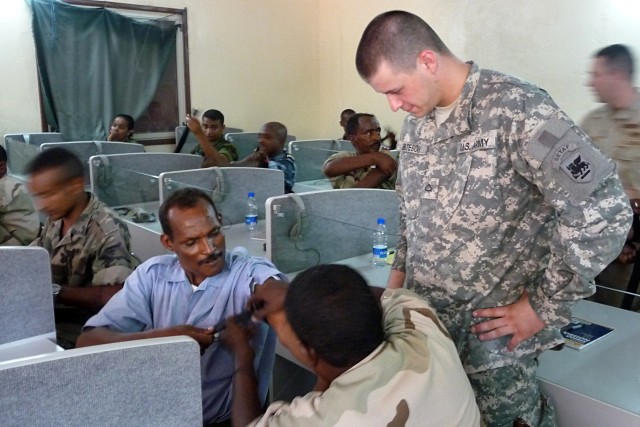
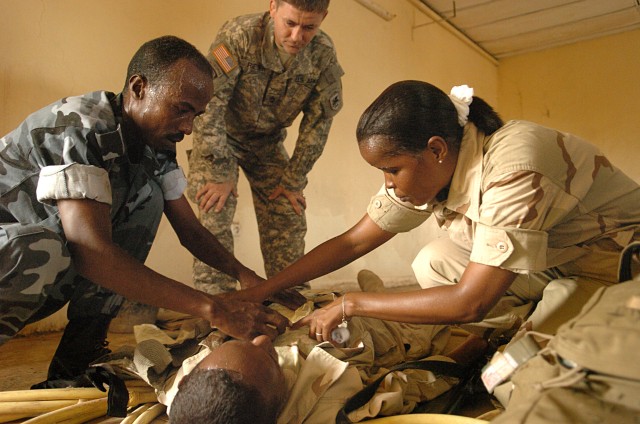
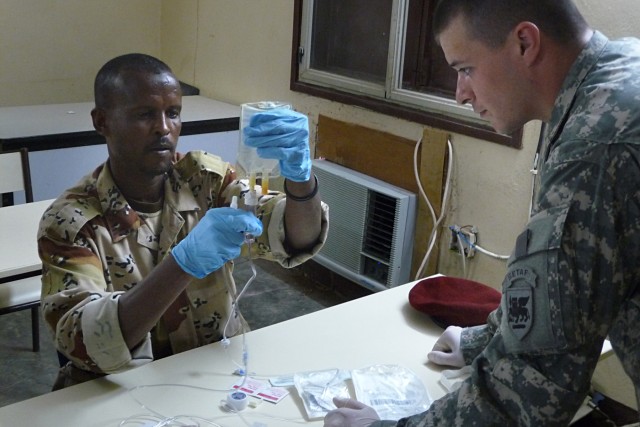
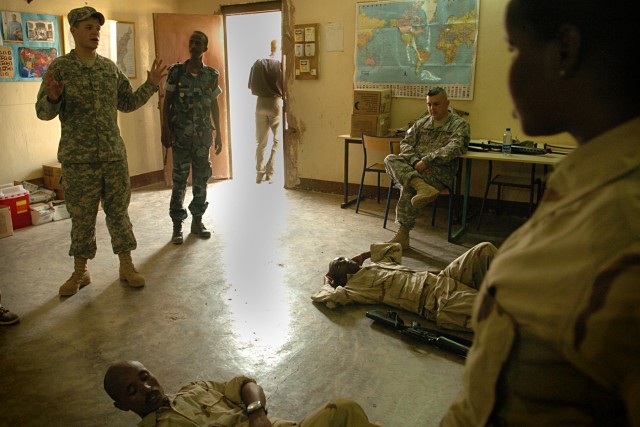
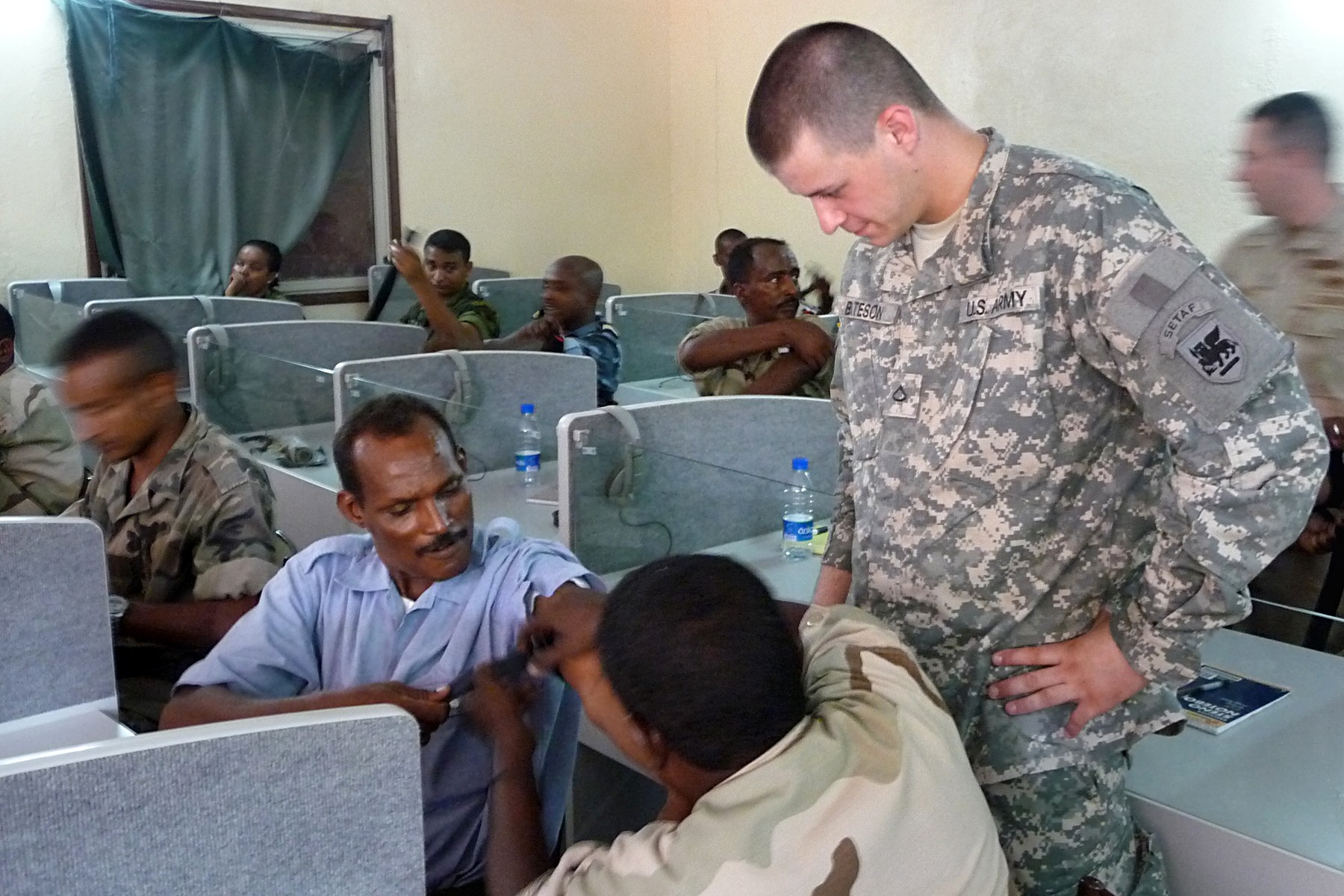
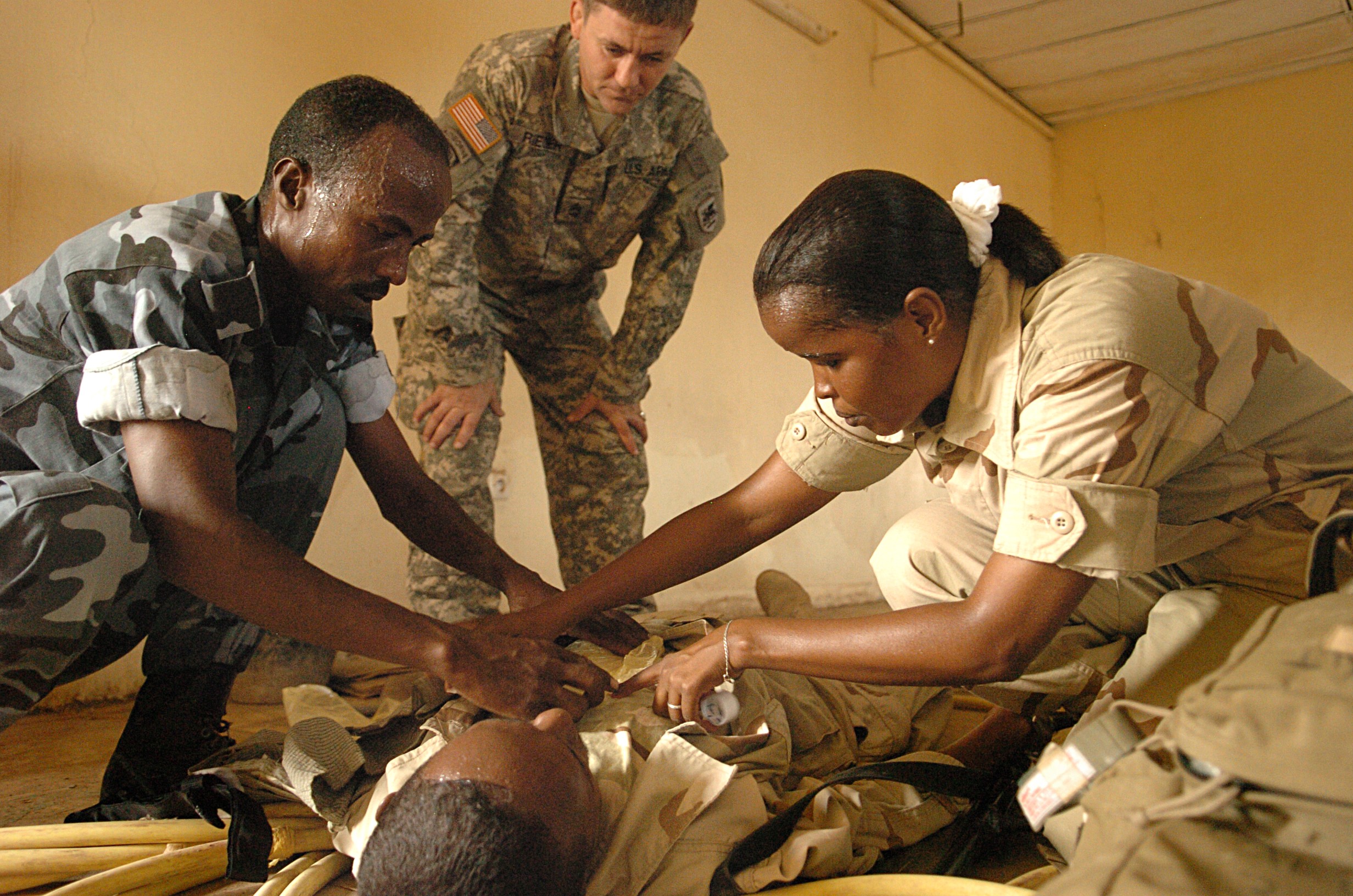
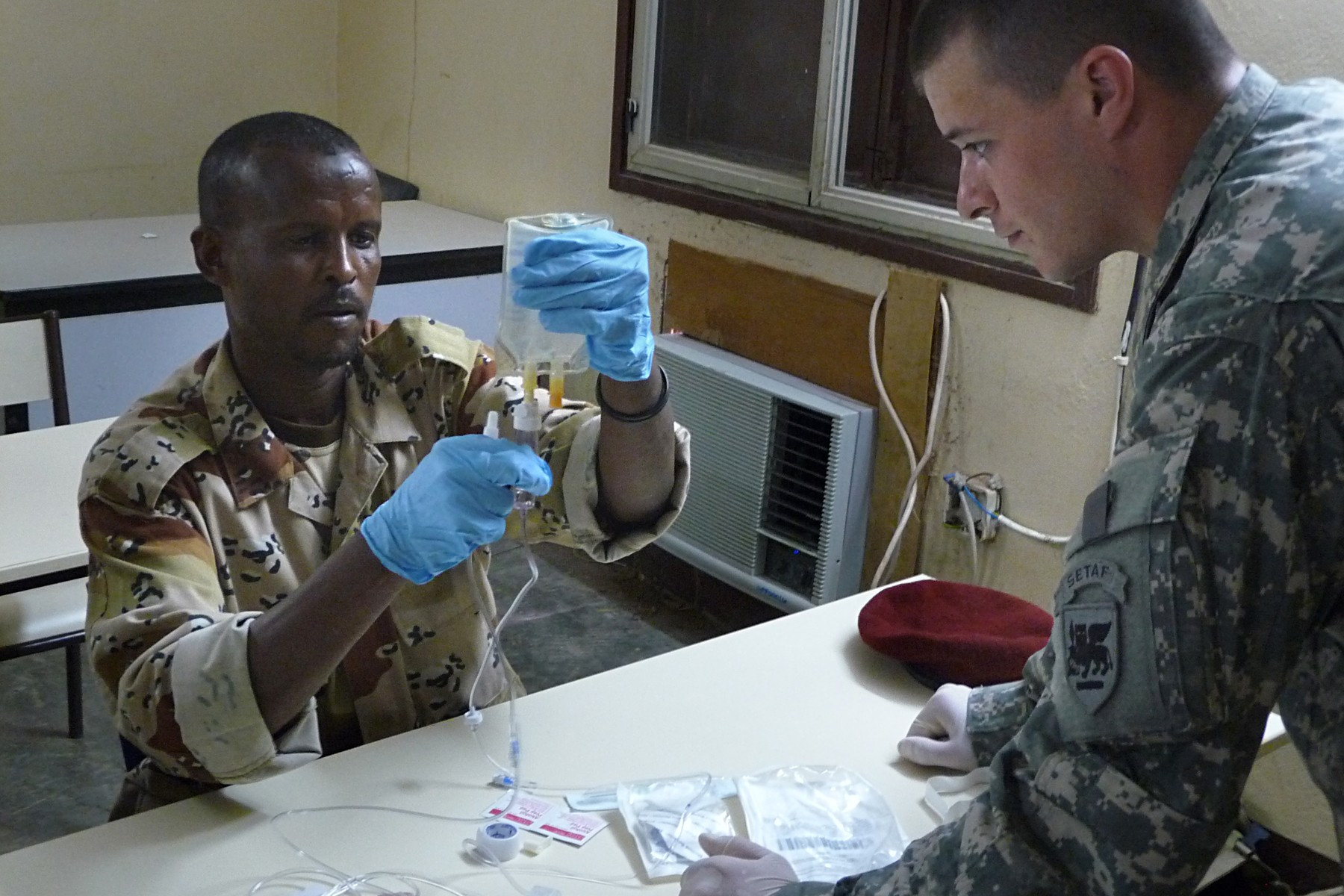
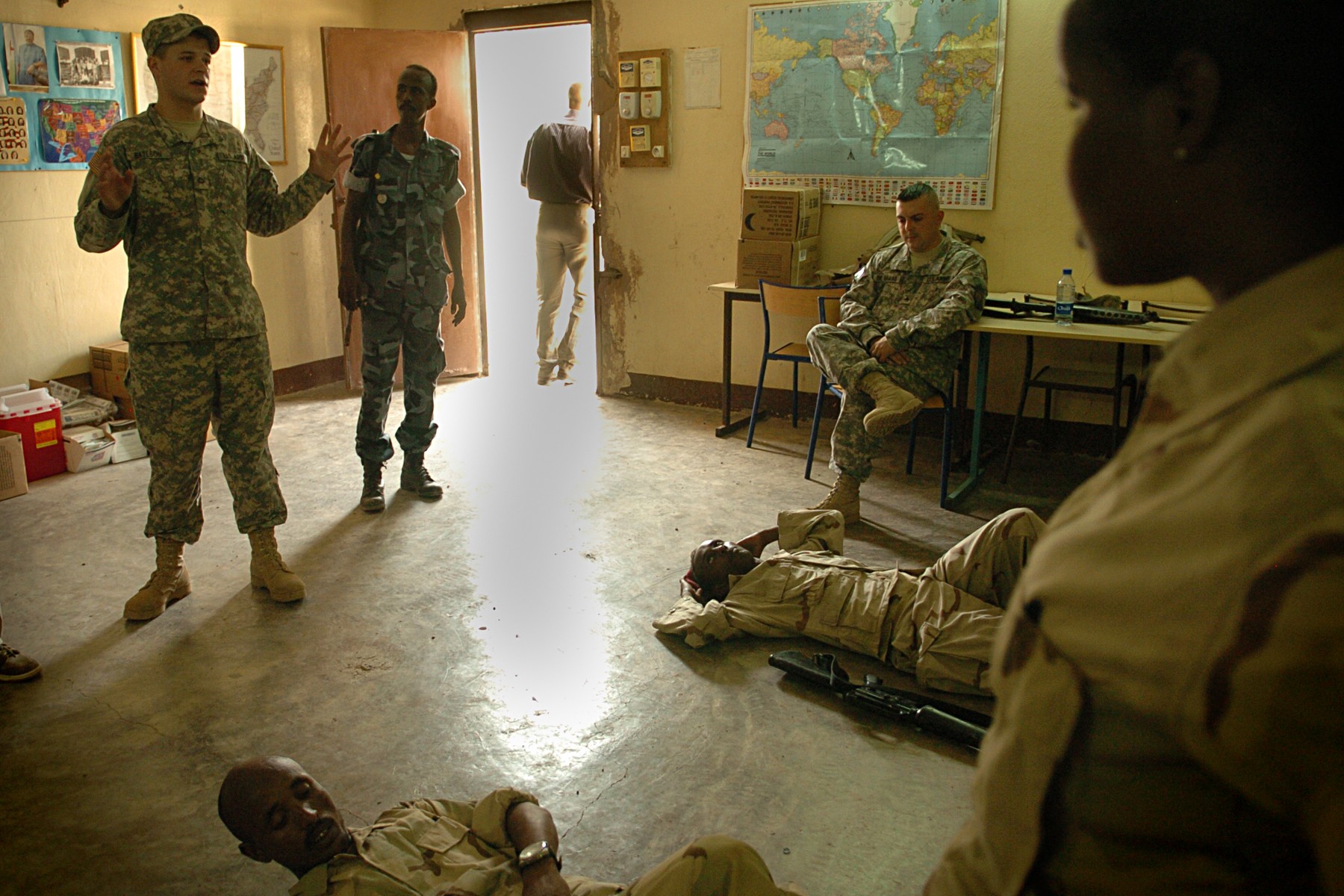
Social Sharing